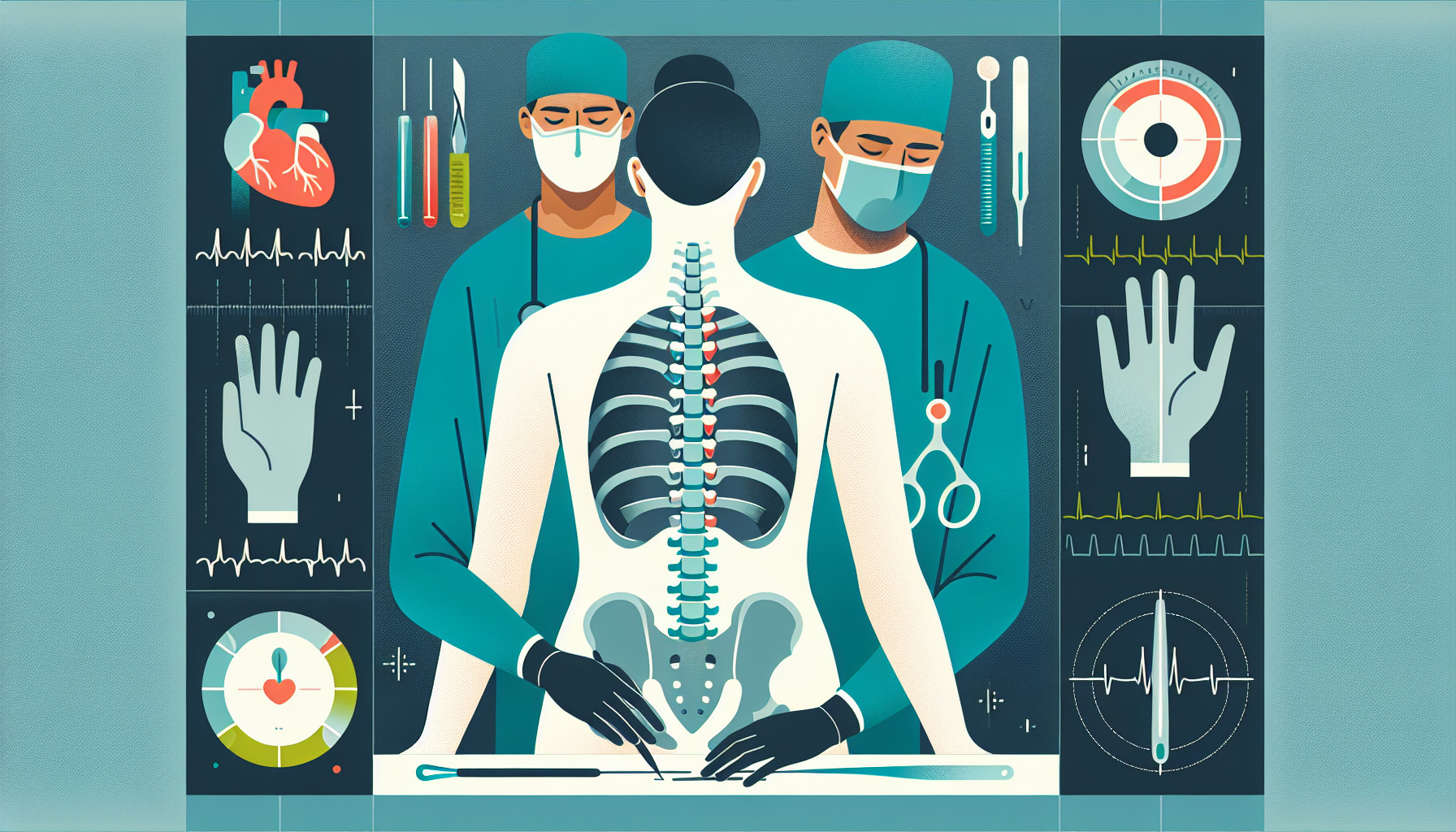Our Summary
This research paper explores the connection between depression and a condition called Degenerative Spine Disease (DSD), which often occur together. The researchers wanted to find out how common depression was in people who had DSD before and after they had a specific type of surgery, called lumbar fusion.
The team looked at all the scientific literature up to the end of April 2022 and included studies where patients had a confirmed diagnosis of depression or where depression was identified using an accepted method. They didn’t include patients with other mental health conditions or those who had a different type of spine surgery.
Their analysis included 15 studies involving a total of 98,375 patients. They found that before surgery, around 15.35% of patients had depression. Among the studies that included patients who had the lumbar fusion surgery, the rate of depression was estimated to be about 11.46%.
The conclusion is that depression is more common in people having this type of spine surgery. As depression can lead to worse outcomes after surgery, the researchers suggest that strategies should be developed to prevent and treat depression in these patients.
FAQs
- What is the connection between depression and Degenerative Spine Disease (DSD)?
- How common is depression in patients who have undergone lumbar fusion surgery?
- What strategies do the researchers suggest to deal with depression in patients undergoing lumbar fusion?
Doctor’s Tip
A doctor might tell a patient about lumbar fusion surgery that it is important to be aware of the potential for depression both before and after the procedure. It is recommended to seek support from mental health professionals and communicate any concerns or symptoms of depression to your healthcare team. Taking care of your mental health can improve your overall recovery and outcomes following lumbar fusion surgery.
Suitable For
Typically, patients who are recommended lumbar fusion surgery are those who have severe back pain and other symptoms caused by conditions such as Degenerative Spine Disease (DSD), spinal stenosis, spondylolisthesis, herniated discs, or fractures in the lumbar spine. These conditions may not improve with conservative treatments such as physical therapy, medications, or injections, and surgery may be the best option to relieve pain, improve function, and prevent further damage to the spine. Patients who have tried other treatments without success or who have significant nerve compression or instability in the spine may also be recommended for lumbar fusion surgery.
Timeline
Before lumbar fusion surgery: Patients may experience symptoms of Degenerative Spine Disease (DSD) such as back pain, weakness, numbness, and tingling in the legs. Some patients may also experience depression, with around 15.35% of patients having depression before surgery.
During lumbar fusion surgery: The patient undergoes the surgical procedure to treat DSD, which involves fusing two or more vertebrae in the lower back to stabilize the spine and reduce pain.
After lumbar fusion surgery: Patients may experience a reduction in pain and symptoms related to DSD. However, the rate of depression after surgery is still relatively high at around 11.46%. It is important for healthcare providers to monitor and address depression in these patients to improve their overall outcomes and quality of life.
In summary, patients with DSD may experience depression before and after lumbar fusion surgery. It is essential for healthcare providers to address and treat depression in these patients to improve their overall well-being and surgical outcomes.
What to Ask Your Doctor
Some questions a patient should ask their doctor about lumbar fusion in relation to depression include:
- How common is depression in patients with Degenerative Spine Disease (DSD) who are considering lumbar fusion surgery?
- What are the risk factors for developing depression before and after lumbar fusion surgery?
- How can depression impact the outcomes of lumbar fusion surgery?
- What strategies are available to prevent and treat depression in patients undergoing lumbar fusion surgery?
- Are there any mental health resources or support services available for patients experiencing depression before or after lumbar fusion surgery?
- How will my mental health be monitored throughout the surgical process and recovery period?
- What are the potential signs or symptoms of depression that I should watch out for after lumbar fusion surgery?
- Are there any lifestyle changes or therapies that can help improve mental health outcomes for patients undergoing lumbar fusion surgery?
- How can I communicate with my healthcare team about any concerns or changes in my mental health during the recovery process?
- Are there any alternative treatments or approaches that may help manage depression in conjunction with lumbar fusion surgery?
Reference
Authors: Siempis T, Prassas A, Alexiou GA, Voulgaris S, Tsitsopoulos PP. Journal: J Clin Neurosci. 2022 Oct;104:91-95. doi: 10.1016/j.jocn.2022.08.001. Epub 2022 Aug 18. PMID: 35987119
